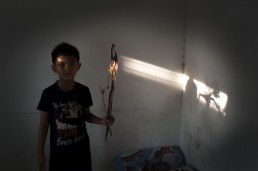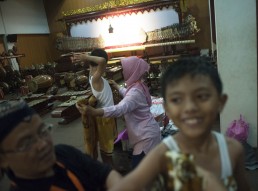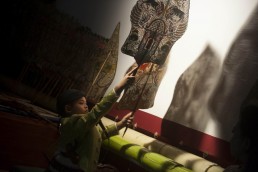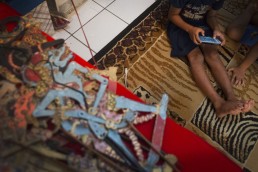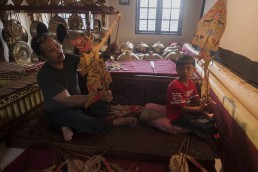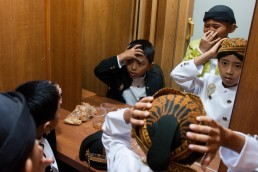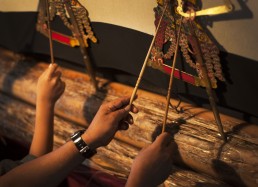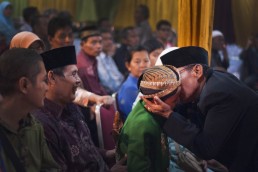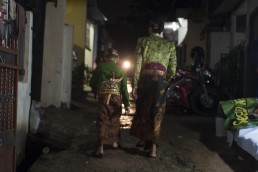A Regeneration of Shadow Puppet Master in the Capital City
A REGENERATION OF SHADOW PUPPET MASTER IN THE CAPITAL CITY
Hendra Agus Setyawan, KOMPAS
The little hands of Harlindar Mukti Prakosa (8) playfully move a wayang, or leather puppet, half the size of his body. Suluk Patet Nem (a kind of poem in a shadow puppet show) is melodiously recited by his little mouth with a distinctive high pitch voice of a child. He plays the puppet before the kelir (a white cotton screen used as background) at 1 x 1 meter, enlightened by a blencong made of a modified study lamp. Harli is literally almost always in touch with wayang. According to Harli’s father, Darko (46), his son has shown his interest in shadow puppets since he was 4 and a half years-old.
Children born and grown up in Jakarta are often uprooted from their very own traditional culture. A modernization factor and a strong influence of foreign culture in a metropolitan city make a traditional art like shadow puppet gain less attraction. Children are more interested in playing console games than watching wayang. They are more familiar with Marvel Heroes than the Pandawa family members.
For those children mostly born in Jakarta, learning to play wayang requires an extra effort. In addition to learning and memorizing numerous wayang characters and various plots of stories, they have to learn Javanese language, which is used in wayang performance, yet it is not a language used by the children in their daily communication.
Out of hundreds of clubs, a club named Sanggar Nirmala Sari has continued to exist and has been on the forefront in providing a training to children who wish to be shadow puppet masters. Established in on 1 June 1987, the club is led by Ki Asman Budi Prayitno, one of the senior dalang, or a shadow puppet master, in the capital city. Every Sunday, Ki Asman, helped by his assistant Pujo Winarto, trains children from as young as 5 to over 10 years old on shadow puppetry and puppet mastery.
According to Ki Asman, the lesson material for the puppet mastery training is adjusted to the children psychological development. For those between the ages of 5 and 7, they are taught about the history of wayang, how to play the puppet, and some brief stories in relation with the trait and personality of some wayang characters. While for those aged 8 to 14, they started to learn about musical accompaniment, dialogues, and narration. Moreover, they would also be trained on role-playing in shadow puppet stories. Generally, stories introduced to them are those with environmental themes such as the earth and the moon, plants and animals and others.
According to Ki Asman the main principle of the wayang class for children is the emphasized lesson about etiquette, respect, and care for living things. Another lesson is about a struggle to reach one’s goals, which is told to children to boost their spirit.
Darko says that wayang is the future of his son. What he does is only to follow and guide Harli in doing what he is interested in, which is to be seriously trained on wayang. Today, other than joining the training at the club, Harli also goes to an English course located near his home in Bintaro, South Tangerang. Harli’s biggest ambition is to stage a shadow puppet show in English.

